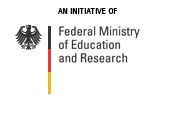Basic facts: What's bioeconomy?
-
 <ic:message key='Bild vergrößern' />
<ic:message key='Bild vergrößern' />
- Biological resources are the basis of a sustainable economy - this is the goal of the bioeconomy. Source: pixelio/Rainer Sturm
Bioeconomy is a modern and sustainable form of economic activity based on the efficient use of biological resources such as plants, animals and microorganisms. All sectors that produce, process or in any way use biological resources, contribute to the biobased economy. These include agriculture, forestry, the energy industry, fisheries and aquaculture, chemical and pharmaceuticals industries, the food industry, industrial biotechnology, cosmetics, paper and textile industries. To continue Germany’s path towards biobased industry innovative approaches are needed. Federal Government has already launched specific funding initiatives for its research and development.
Introduction
Bioeconomy refers to the sustainable form of economic activity based on the efficient use of biological resources such as plants, animals and microorganisms. To make this possible, highly innovative approaches are necessary.The bioeconomy covers all industrial and economic sectors, which use renewable biological resources for producing products and providing services using innovative biological and technological knowledge and processes. These include agriculture, forestry, energy sector, fisheries and aquaculture, chemistry and pharmacy, the food industry, industrial biotechnology, cosmetics, paper and textile industries as well as environmental protection.
Knowledge-based bio-economy uses biological and technical expertise
“Knowledge Based Bio Economy” (KBBE) is the familiar term used within the European Research Area (ERA). The knowledge-based bio-economy not only replaces conventionally produced products, but also creates new and sustainably products. With its many possibilities, the bioeconomy makes an important contribution to solving global problems. This includes health and nutrition for a growing global population, and its sustainable supply of energy, water and raw materials as well as the soil, climate and environmental protection.
Replacing industrial petroleum
The bioeconomy aims to facilitate a structural transition from petroleum-based to a biobased industry. Germany is now on a decisive course towards an economy that is based on a natural cycle of materials. The government’s goal is to use research and innovation to facilitate a structural change from a petroleum-based economy towards a sustainable biobased economy, which is connected with great opportunities for growth and jobs.
